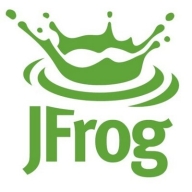

GitLab and JFrog Xray are direct competitors in the DevOps space, with GitLab leading in integration and collaboration and JFrog Xray excelling in security and artifact management.
Features: GitLab's integrated CI/CD pipelines, robust collaboration tools, and comprehensive project management make it a powerhouse for developing teams. Meanwhile, JFrog Xray offers advanced security features, license compliance checks, and integration with JFrog Artifactory, emphasizing its strength in artifact analysis.
Room for Improvement: GitLab could enhance its security features, provide better scalability options for large enterprises, and improve integration with third-party security tools. JFrog Xray might benefit from simplifying its user interface, reducing setup complexity, and expanding customer support to include broader DevOps practices.
Ease of Deployment and Customer Service: GitLab is praised for its straightforward deployment options available both on cloud and on-premises, along with strong customer support. JFrog Xray, when integrated with JFrog Artifactory, offers a seamless artifact management experience but may present a daunting learning curve, requiring specialized knowledge, making it less suitable for non-specialized teams.
Pricing and ROI: GitLab provides cost-effective solutions with flexible pricing tiers, offering significant ROI for inclusive product development. JFrog Xray, while potentially more expensive due to Artifactory dependencies, generates valuable ROI through enhanced security and compliance capabilities, benefiting organizations with strict security mandates.
Migrating to GitLab is bringing time-saving benefits, and everything is easier to automate.
We have saved time significantly, reducing deployment time from four hours to five minutes per deployment.
We have rarely needed to escalate issues to technical support since GitLab usually runs seamlessly.
I have interacted with architects for some advice during the implementation, and they were prompt in their response.
I have had meetings where they taught me, explained things, and provided guidance for starting from scratch.
When we need clarifications, we contact our account manager, and they arrange demos.
On a scale of 1 to 10, I would rate the technical support of JFrog Xray an eight because they are very knowledgeable.
It has all the features required for our coding and deployment needs, which makes it scalable to our changing requirements.
We're transitioning to OpenShift for future scalability with increased user numbers.
For scaling, other deployment options from GitLab's side need to be adopted.
According to my use case, it is highly scalable.
I have not encountered any performance or stability issues with GitLab so far.
The updates are frequent and demanding, happening at least once a week due to security reasons.
We raised a request with GitLab support, but they were unable to help because they could not find the root cause of what went wrong.
I use JFrog Xray primarily for security purposes, and I find it reliable.
We did experience crashes, downtimes, and performance issues with JFrog Xray.
It would be beneficial to have a user-friendly interface for setting up these configurations, instead of just writing YAML files.
It is essential to conduct proper testing, such as unit tests and code coverage, within the SDLC pipelines.
GitLab can improve its user interface to make conflict resolution more user-friendly.
When we have given a very long tag, it doesn't work as expected and requires excessive scrolling.
somehow you need to adapt your GitLab pipeline and turn them into JFrog pipeline, and this is something they don't really advertise at first—you're obliged to use the JFrog CLI.
X-ray needs improvement in supporting more than one database, as it currently only supports PostgreSQL.
Even when working in other small organizations, we opted for GitLab as it was cost-efficient.
The pricing of GitLab is reasonable, aligning with what I consider to be average compared to competitors.
The price is high, and it limits user accessibility.
JFrog Xray provides a free trial of 14 days.
The basic scanning capabilities come with Artifactory, however, curation requires additional licenses.
As we implement automated testing and DevSecOps, it speeds up the process by forty to sixty percent.
The Ultimate version offers enhanced features for security scanning through DAST and SAST analysis, which have greatly benefitted our project workflow.
By integrating GitLab as a DevOps platform, we have enhanced agility, improved our time to market, and different teams can work collaboratively on various projects.
The most valuable features of JFrog Xray are its curation capabilities, its native integration with Artifactory, scanning for vulnerabilities, and license compliance features.
The policy-driven approach of JFrog Xray helped me maintain security standards by integrating it in the development pipeline.
With other registries such as ECR, we can use the images only in the AWS cloud. With JFrog, we can use this registry from any cloud or work locally as well.
| Product | Market Share (%) |
|---|---|
| GitLab | 4.2% |
| JFrog Xray | 10.0% |
| Other | 85.8% |


| Company Size | Count |
|---|---|
| Small Business | 35 |
| Midsize Enterprise | 9 |
| Large Enterprise | 42 |
| Company Size | Count |
|---|---|
| Small Business | 1 |
| Midsize Enterprise | 3 |
| Large Enterprise | 6 |
GitLab offers a secure and user-friendly platform for CI/CD pipeline management, code repository control, and collaboration, enhancing development speed and efficiency. It facilitates automation with extensive customization and tool integration, ideal for DevOps processes.
GitLab supports source code management, version control, and collaborative development. It's frequently used in CI/CD processes to automate builds and deployments while integrating DevOps practices. GitLab allows companies to manage repositories, automate pipelines, conduct code reviews, and maintain development lifecycles. The platform supports infrastructure and configuration management, enabling efficient code collaboration, deployment automation, and comprehensive repository handling. Many organizations commit and deploy developed code using GitLab's capabilities.
What are GitLab's most valuable features?In specific industries, GitLab serves as a backbone for source code management and CI/CD implementation. Companies leverage its capabilities for infrastructure management and deployment automation, thus streamlining project delivery timelines. Its ability to handle configuration management and code repositories effectively aids in maintaining development lifecycles, making it a preferred choice for organizations committed to enhancing their DevOps practices.
JFrog is on a mission to enable continuous updates through Liquid Software, empowering developers to code high-quality applications that securely flow to end-users with zero downtime. The world’s top brands such as Amazon, Facebook, Google, Netflix, Uber, VMware, and Spotify are among the 4500 companies that already depend on JFrog to manage binaries for their mission-critical applications. JFrog is a privately-held, global company, and is a proud sponsor of the Cloud Native Computing Foundation [CNCF].
If you are a team player and you care and you play to WIN, we have just the job you're looking for.
As we say at JFrog: "Once You Leap Forward You Won't Go Back!"
We monitor all Software Composition Analysis (SCA) reviews to prevent fraudulent reviews and keep review quality high. We do not post reviews by company employees or direct competitors. We validate each review for authenticity via cross-reference with LinkedIn, and personal follow-up with the reviewer when necessary.